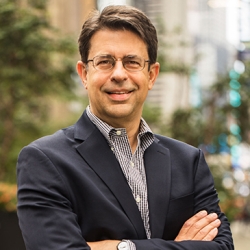
- About
- Education
- Research
- Engagement & Collaboration
- News & Events
Back to Top Nav
Back to Top Nav
Back to Top Nav
Back to Top Nav
Every year, the Irving Institute hosts a popular two-day intensive workshop for Dartmouth undergraduate students curious about advancing the clean energy transition through finance. Led by expert Curtis Probst, CEO of the New York City Energy Efficiency Corporation (NYCEEC), the program welcomes a cohort of about 20 students annually. Its mission is to introduce students to financial tools that can accelerate an affordable, reliable, and equitable clean energy transition.
The curriculum offers a comprehensive introduction to the financial aspects of the clean energy economy, covering topics such as renewable energy generation and energy efficiency. Educators combine engaging lectures, practical modeling exercises, and immersive role-plays to provide a well-rounded learning experience. One 2025 participant remarked, "I liked that the bootcamp included a variety of modules from lectures, sample modeling, to role play of the current political environment. It was very comprehensive," highlighting the diverse teaching methods used.
A key focus of the bootcamp is exploring how finance can serve both as a barrier and an enabler for clean energy adoption. Through hands-on workshops, students analyze financial models, lending principles, and various mechanisms for financing clean energy projects. The program frequently encourages lively debates, challenging students to critically apply their knowledge. As one participant noted, "There are multiple financial mechanisms to bring about the clean energy transition. But context matters, and it is important to discern which mechanism is best. Thank you so much for putting on this programming! I wouldn't have learned about this important sector otherwise."
Overall, the Clean Energy Finance Bootcamp deepens participants' understanding of the evolving energy sector and sparks curiosity about how they can contribute to advancing sustainable energy solutions. By the end of the program, students should be able to:
This outcome-focused approach ensures that participants emerge with practical skills and critical insights essential for shaping the future of sustainable energy.
Day One
Day Two

Curtis Probst is CEO of New York City Energy Efficiency Corporation. NYCEEC is a public-private-philanthropic partnership that finances energy efficiency and clean energy projects in New York City and the surrounding region, with a focus on disadvantaged communities. Before joining NYCEEC in 2018, he was a Managing Director and the Head of Sustainable Finance for RMI. Previously, Curtis worked in investment banking for over 24 years. Most recently, he was a Managing Director and the Head of Corporate Structured Finance at Goldman Sachs where he worked for over 15 years. Before joining Goldman Sachs, he worked at Salomon Brothers for over 8 years.
Since 2016, Curtis has also been an adjunct faculty member of Columbia University where he teaches a graduate level course in clean energy finance. He has also taught at Dartmouth College and University of Calgary. In addition to his other professional activities, Curtis has held board positions at several organizations and has spoken on sustainability and finance at numerous events in the United States, Canada, and Europe. Curtis received a BComm from University of Calgary, an MPA from Columbia University, an EdD from University of Pennsylvania, and is a Chartered Financial Analyst.